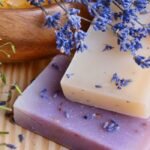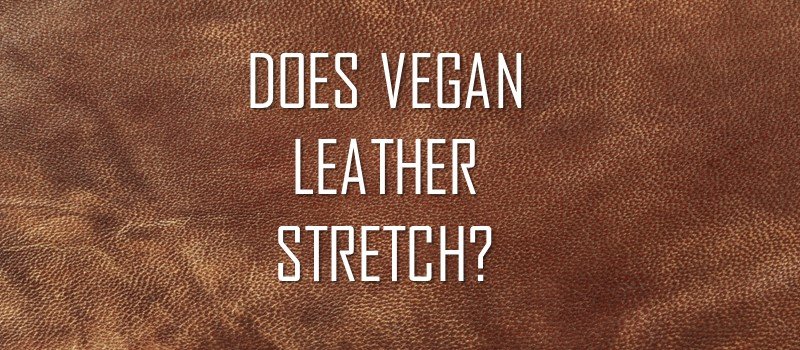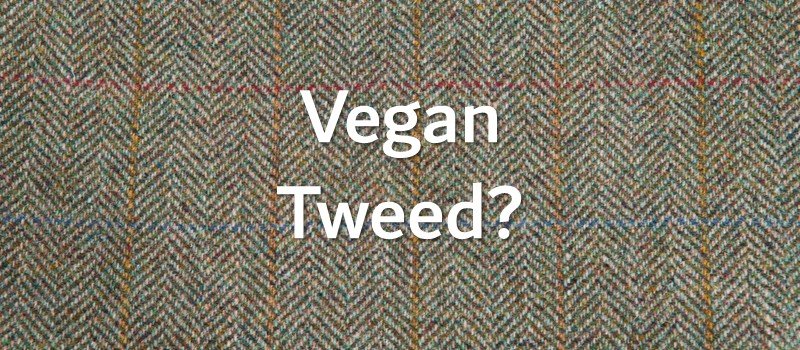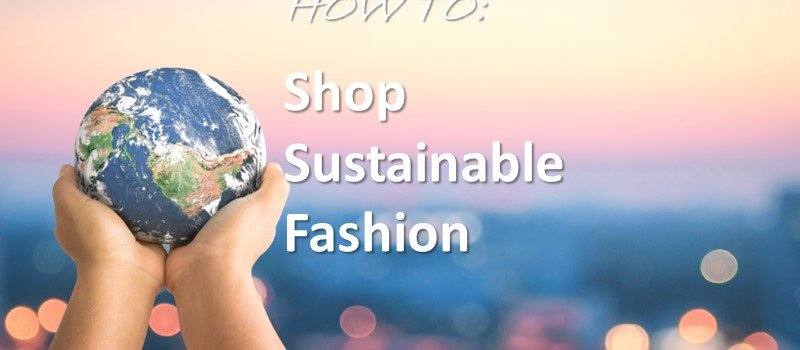Vegan shoes are a commonsense alternative to ones made from animal products. Animals do not need to suffer just so that you have a comfy pair of sneakers, sandals, or slippers on your feet. Nor should they! Let’s find out what vegan shoes are made of, and what you need to look out for when buying vegan shoes.
For newer vegans, the availability of vegan footwear may come as a revelation. Yet, the likes of Nike, Dr. Martens, and Converse, plus some specialty vegan footwear brands, ensure that there are plenty of footwear choices available.
The fashion industry is catching up with the needs of vegans and those that want to live a more ethical, environmentally friendly, sustainable lifestyle. We even have bamboo suits now!
Some vegan shoes may be made in plants that also manufacture leather shoes.
Converse, for instance, has pointed out that they don’t promote their All-Stars line of shoes as vegan-friendly because whilst all the materials are vegan-approved, the factory also makes non-vegan shoes too.
Determining that situation is on a case-by-case basis and often, won’t be confirmable without a direct inquiry to the company. Just something to bear in mind.
What are vegan shoes made of?
Vegan shoes are made from a variety of materials.
Here are some examples:
Vegan Leather Shoes
Leather shoes are perhaps the most common in the world, so an alternative for vegans that achieves a similar look and durability was badly needed.
Polyurethane (PU), also known as synthetic leather, is the material that best fits this need. The PU leather is tough and can be shaped and colored to match the needed appearance for the footwear. It is a great alternative to real leather.
Typically, with polyurethane, an internal backing made from cotton provides a soft feel on the inside of the shoe. These are bonded to form a single layer.
A mixture of different types of faux leather and shiny faux leather are utilized depending on the purpose of the footwear: office, casual, etc.
Vegan leather producers often supply vegan shoe manufacturers with cruelty-free textiles that meet the standard required. Shoe factories then complete the final product.
The sole is often produced using a resin that’s been recycled or some other material that’s shaped to fit. This provides support for the bottom of the foot. These are often sustainable materials.
The outsole, the bottom of the shoe, may be made from rubber or another material that will help to give the shoe a responsive feel.
Vegan Suede Shoes
Traditional suede is a type of treated leather, specifically the inside animal skin lining which is softer (the outer layer is traditional leather). Waterproof suede, another type, is also not vegan.
Avoiding suede is important as a vegan, but also watch out for potentially vegan-friendly shoes, or boots particularly too, with fur trim. That can catch you out if you’re not careful.
Vegan suede is widely available now.
It is produced using either microfiber or microsuede. For instance, the microsuede is created using tiny fibers of polyester. There is also coffee leather and other alternative options to achieve both the appearance and softness of suede, but without animal byproducts used to achieve it.
Check out our article on vegan alternatives to suede for more info.
For former suede lovers who disliked its vulnerability to rain, that’s no longer a concern. All the vegan leather options stand up much better to the elements.
Some vegan suede is produced using recycled materials, but not all. That depends on the shoe manufacturer.
Also, some of the materials for making the shoe might be recycled whereas others are new, in a kind of mix and match.
It depends on what the vegan shoe manufacturer can source reliably to produce a consistent product line.
Vegan Fabric Shoes
Vegan fabric shoes get made from many types of materials.
They also benefit from being more breathable to keep the feet cooler even on hot days.
Anti-bacterial treatments are also usually possible, which is great for people with sensitive skin who get breakouts easily as their feet overheat.
Cotton, polyurethane, and hemp are frequently used in shoe production. Yarn scraps and a woven textile may be used instead. Recycled polyester, cork, and Rayon from wood pulp can all form a base.
For fabric shoes, there is a mixture of both natural and synthetic materials utilized.
On the synthetic end of things, you may have Modal. This comes from the beech tree pulp and is a partial synthetic. Another fabric is Muslin, which is a natural cotton fabric with an unfussy woven appearance.
Canvas is also a useful option for the outer layer of a fabric shoe, with an inner lining that softer.
Fabric shoe manufacturers have many vegan-friendly materials to select from.
This is beneficial to achieving the style and finished appearance to match their digital design sketches.
Vegan Snakeskin Shoes
Lately, vegan snakeskin shoes have been getting attention since musician Miley Cyrus wore a pair.
This has brought welcome attention to their availability.
Snakeskin for vegans is created using embossed polyurethane that has a print on its surface.
The printing allows for the creation of faux snakeskin. Also, faux ostrich leather and even faux crocodile skin are possible using similar design and production methods.
Vegan Richards produces men’s footwear with eye-catching faux snakeskin patterns to them.
O2 Monde and Beyond Skin do the same for women’s footwear.
Also, there are many Etsy boutique vegan shoe suppliers to get a unique design.
What Glue Is Used in Vegan Shoes?
Glue originally was derived from collagen, from cows, horses, and pigs, mainly. Isinglass, a sturgeon fish glue, and casein from cows are frequently found in animal-sourced glue.
However, in the last couple of decades, synthetic glues have been found to create better bonding and began to dominate the market.
This has happened completely separate to demand from vegans.
It is the case that some shoe manufacturers still use glues from animal parts, but not that many. Even popular brands like Gorilla Glue now have vegan glues for sale to satisfy DIY purposes.
Synthetic glues are affordable, plentiful, and meet vegan requirements. Finding shoes made with vegan glue isn’t difficult at all.
Are Vegan Shoes More Sustainable Than Leather Ones?
Different materials are tapped to produce vegan shoes.
Certainly, PU leather coming from the petroleum sector is less eco-friendly than some would desire.
However, this is still preferable to the leather tanning industry which is allegedly one of the worst pollutants on the planet. The use of various chemicals to treat animal hides including chromium is dangerous too.
It is also possible to purchase textile-based vegan sneakers and shoes, rather than faux leather ones.
This avoids using polyurethane to be more in keeping with a stronger eco-friendly focus.
However, any type of vegan shoe is better for the sustainability of the planet than “real” leather-based ones and is likely to have less of an environmental impact.
Will Vegan Shoes Last?
Vegan shoes are designed to last just as long as non-vegan shoes. Otherwise, customer dissatisfaction and market forces would lead to new solutions.
PU leather is durable enough. Fabric shoes are often washable, which helps as they can attract dirt through natural wear.
This renews the fibers and helps to keep the vegan fabric shoes viable.
Shoes usually aren’t worn until they’re virtually falling apart though.
They’re also fashion statements in their own right with fashionable designs that come in and out of season. Therefore, most wearers will likely have moved onto a replacement vegan shoe before the older vegan shoe wears out.
How Do You Know If Shoes Are Vegan?
Many vegan shoe brands will display the PETA-Approved Vegan logo proudly on their marketing and shoe packaging.
Alternatively, you’ll either see a dedicated vegan shoe line from a major brand like Nike sporting a vegan logo or the manufacturer only makes vegan shoes (or a wide range of vegan-only goods).
Either way, it will be clear in the marketplace when a pair of shoes are vegan or not.
If you are interested in vegan fashion, check out our article on non-vegan clothing to avoid.
Conclusion: What Are Vegan Shoes Made Of?
Hopefully, in this article, we have taken you through some of the non-vegan materials which are used in the manufacture of shoes, and also popular materials which are used in the manufacture of vegan shoes. The fashion and footwear industry is catching up with the vegan movement and is making constant improvements with its offerings.




